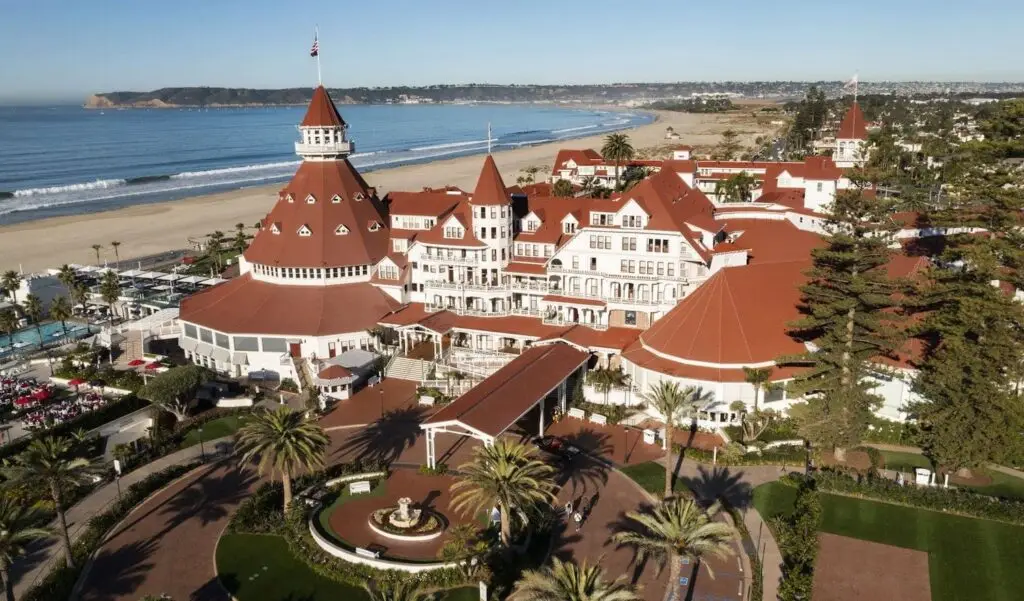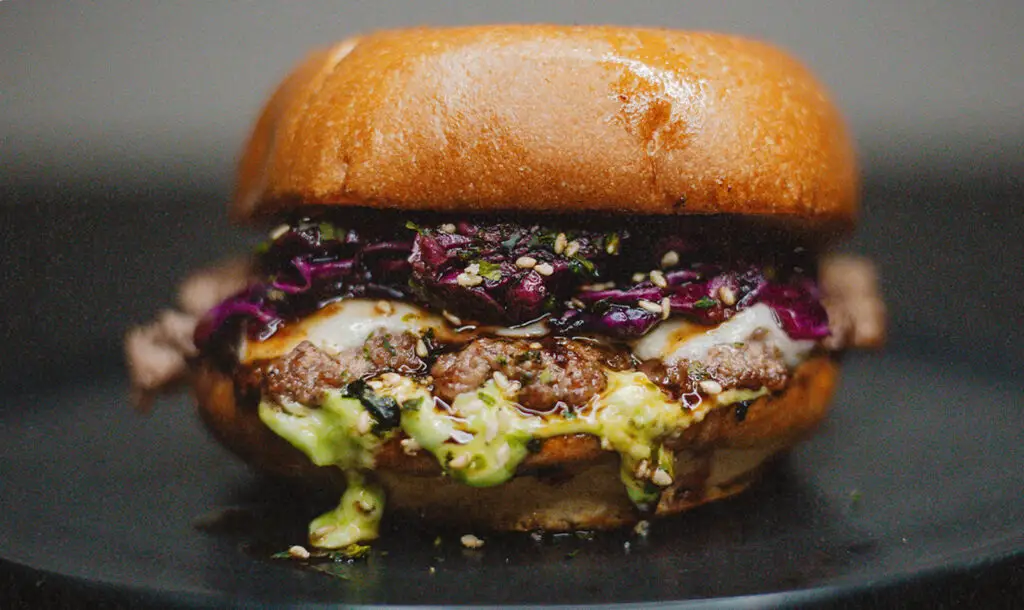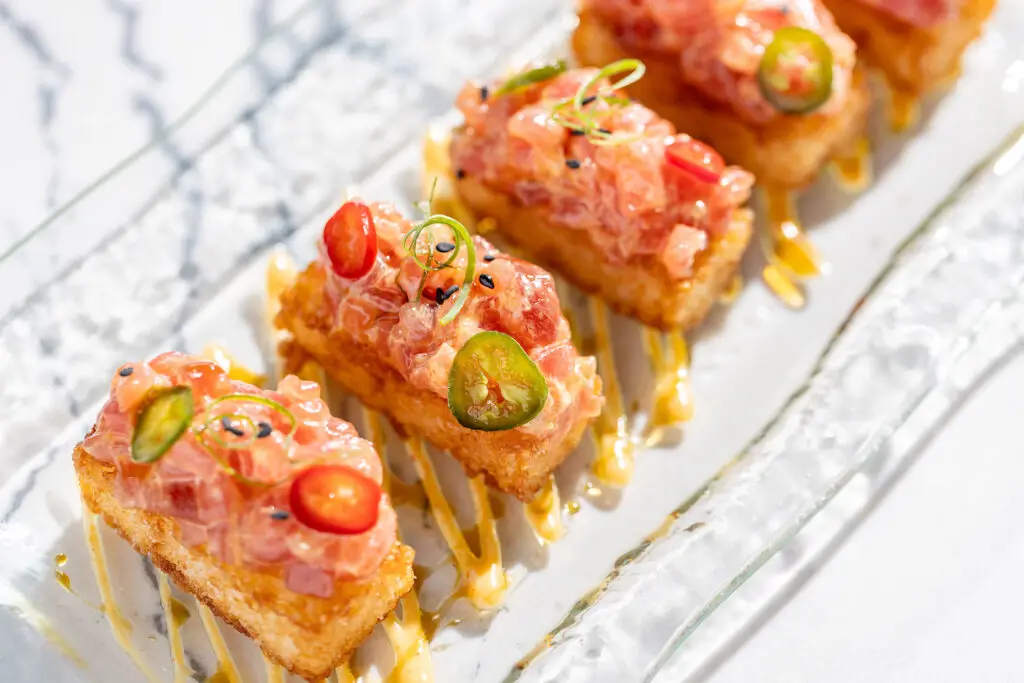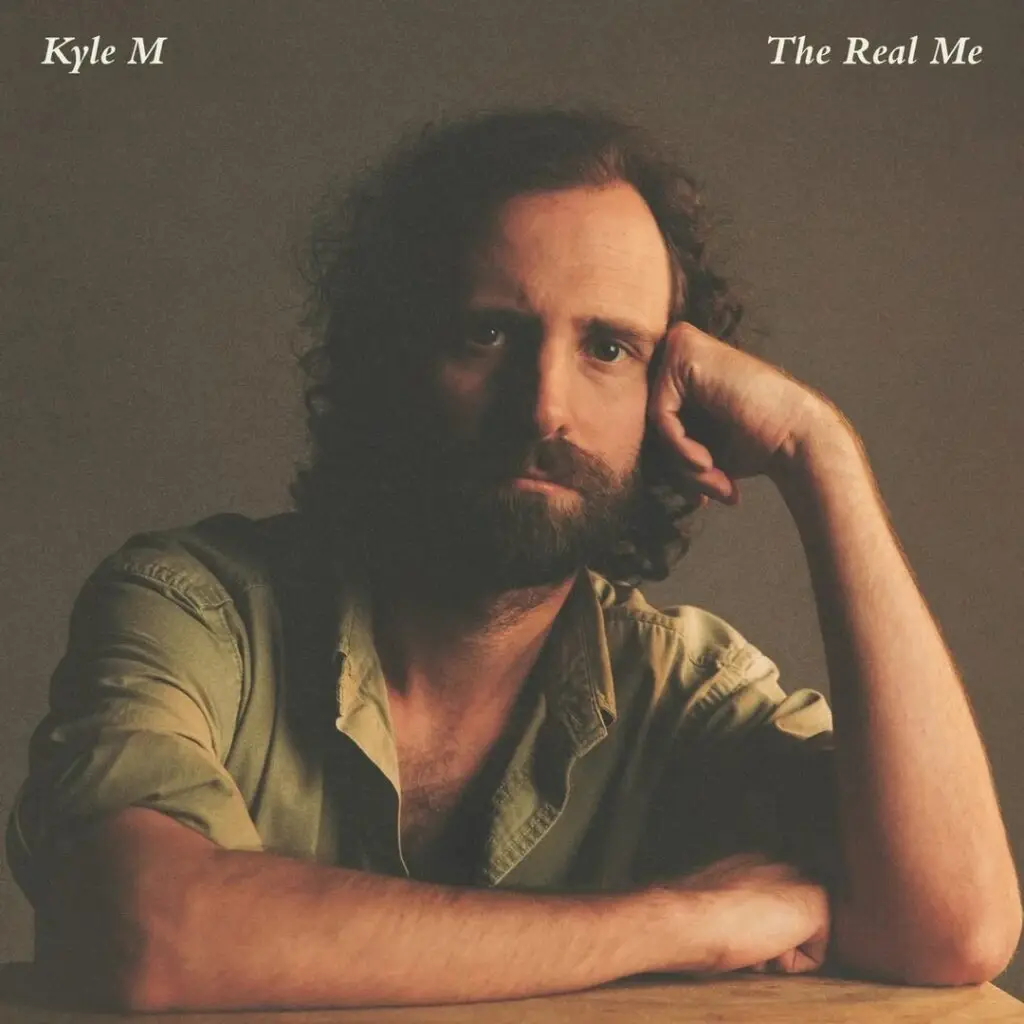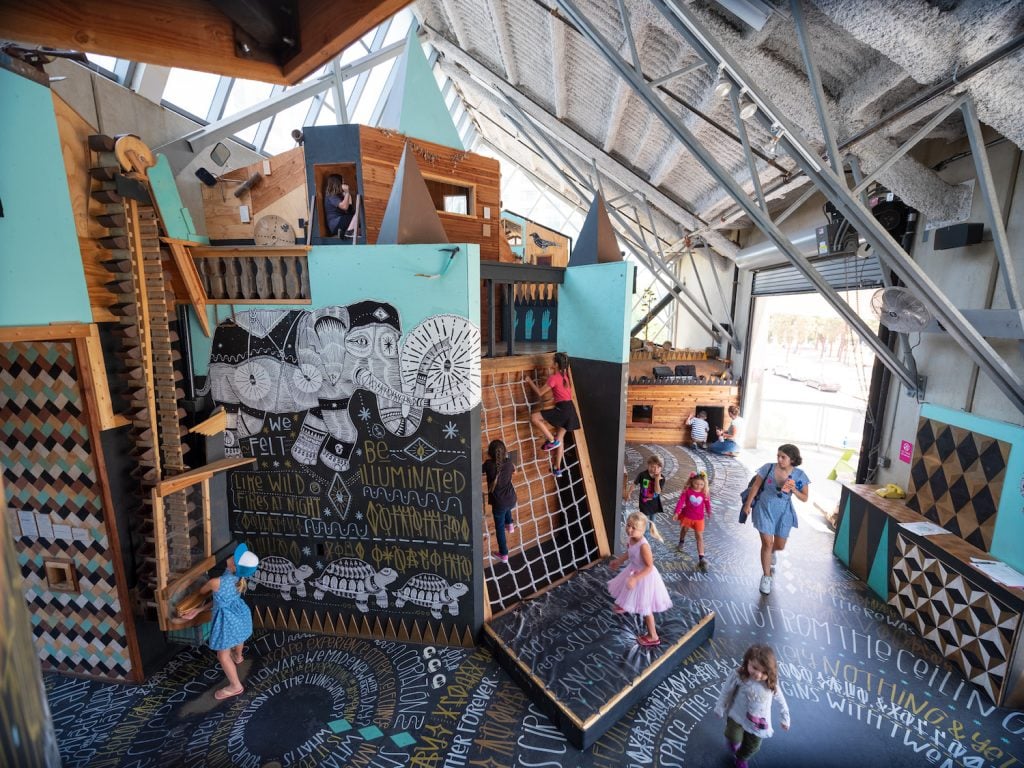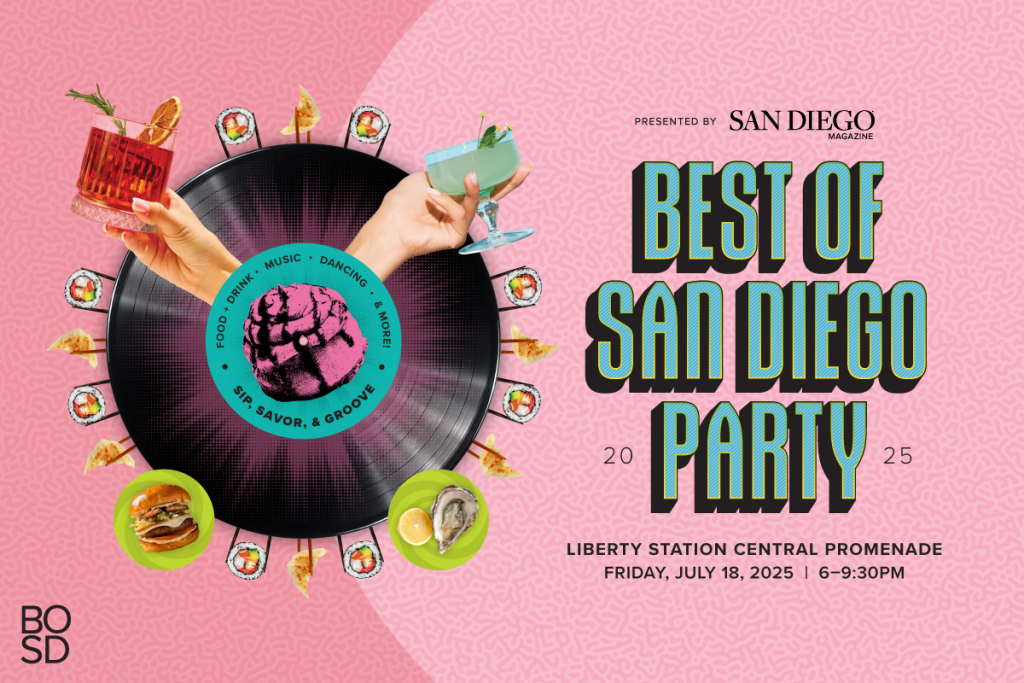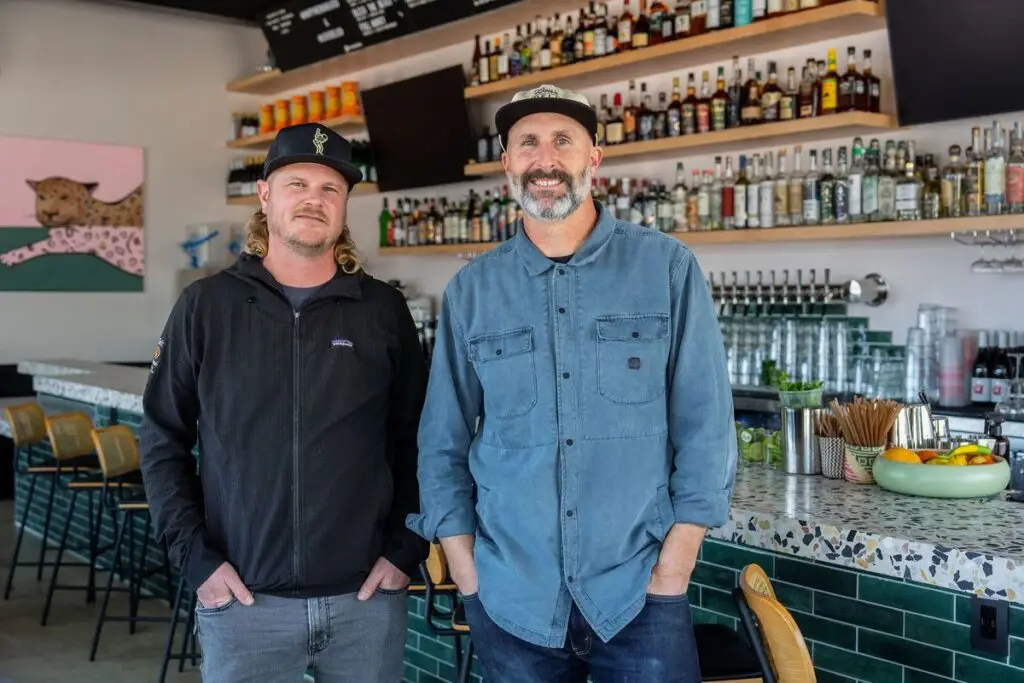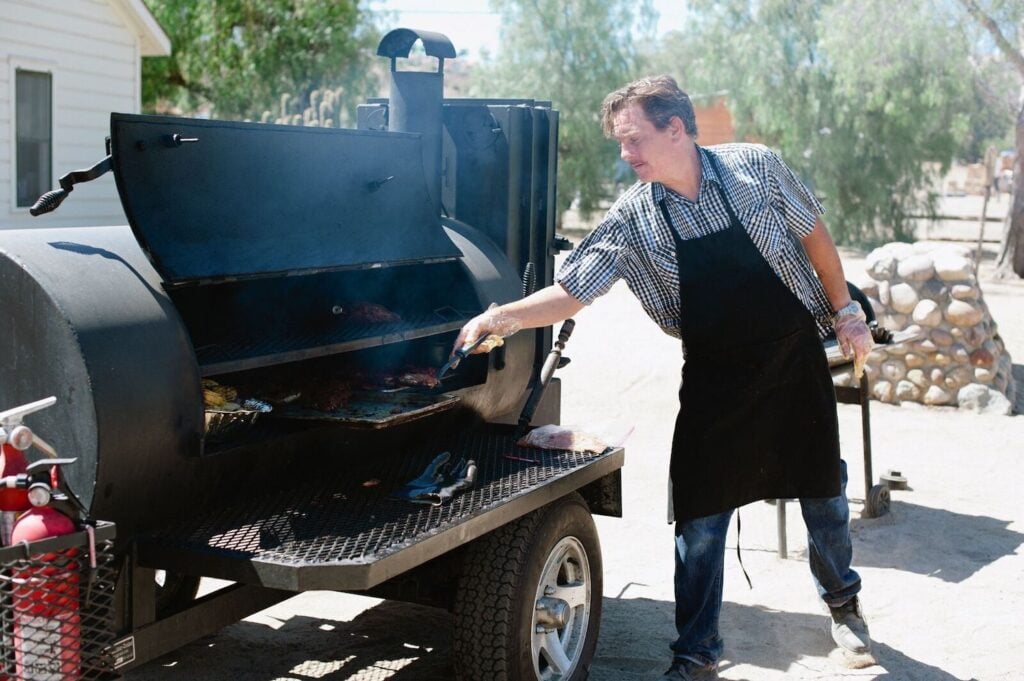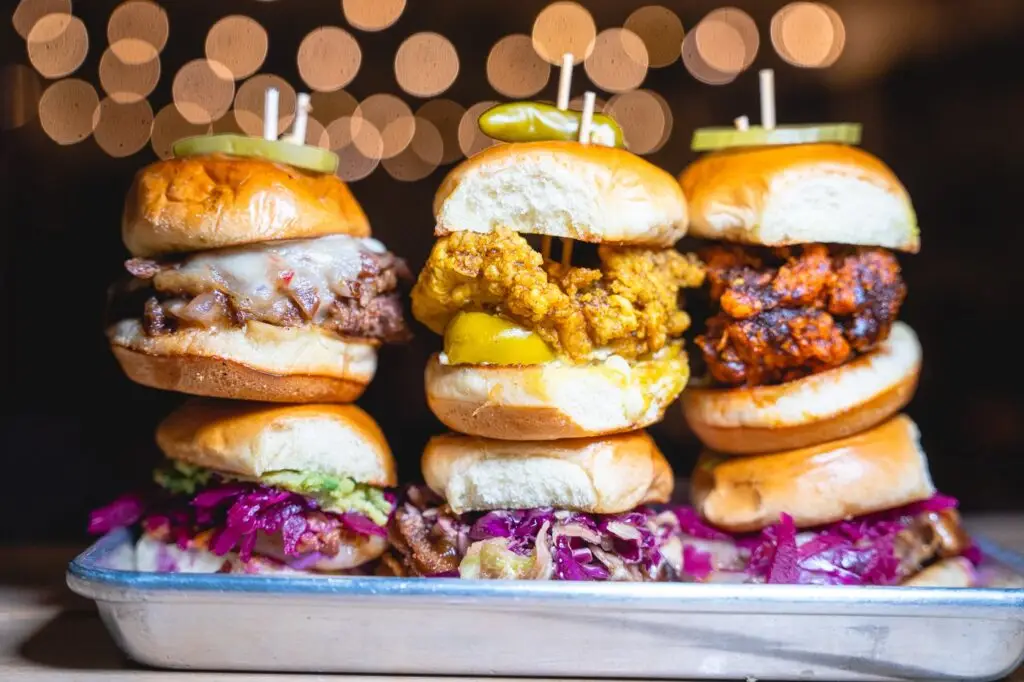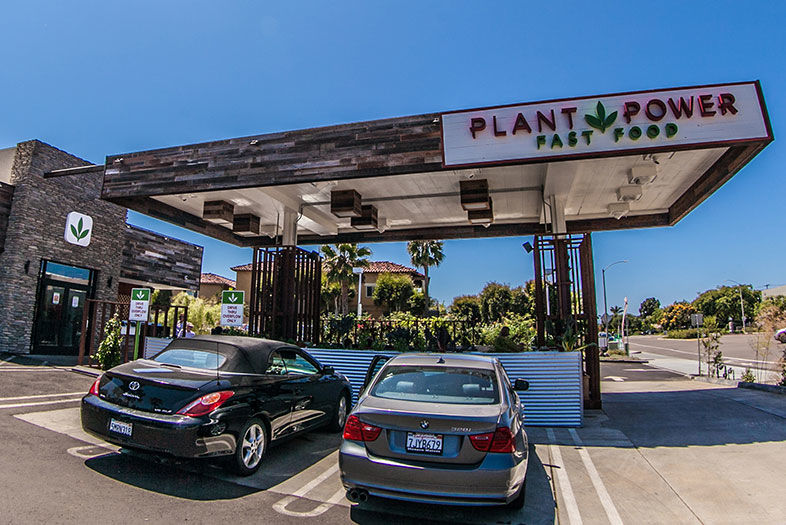Drive-thru restaurants are as depressing as they are useful. Once the celebratory hangout of car culture (America’s drive-thru boom was intimately tied to the development of highways), now they’re the unlucky embodiment of all that’s wrong with commodity food and our waistlines. Whenever we hear a stat like 70.7% of Americans are overweight (and 37.9% of us obese), we think of a burger clown, tailpipe exhaust, chicken-nuggeted kids, shakes, fries, ketchup, ranch, and an obligatory “salad in a cup” that no person of sane mind ever orders.
No city charter states “we need more fast food.” City planners try their hardest to zone them out. There are many reasons, including environmental impact of cars and trash. But the main reason for anti-fast foodism is tied to their deep-fried, sugar-filled, salt-spackled food and its inflationary effect on our human bodies. They’re a bigger villain in modern American than gluten or man-buns.
But what if fast food were different? What if it was ecologically conscious, served more plant-based foods, and generally tilted society in a progressive direction instead of a diabetic direction? Slow-food purists will tell you that food shouldn’t be rushed. That’s great for purists. But life is no casual stroll. Can’t we have the best of both worlds? Healthier food produced with somewhere near the expediency of McDonald’s? Why throw the baby (fast food) out with the bathwater (fattening, cheap, bad food)?
That’s the idea behind San Diego’s Plant Power, and they’re not alone. They serve plant-based fast food. All of their materials (utensils, etc.) are made from recycled material or plant material. The owners even dream of having a drive-thru that looks like a domed garden, with a canopy of plants and greenery that help offset the greenhouse emissions from cars.
The need for fast food and drive-thrus is still real. More than 160,000 fast food joints feed over 50 million Americans every day, with sales of over $110 billion. That’s because it doesn’t matter how educated we become about commodity food problems (hormones, antibiotics, CAFOs, etc.), we’re still busy. We still have demanding jobs, kids, spouses, friends, social media notifications, and lives. Minutes have never been more gold.
Now it’s happening. Healthy fast food is the future. The movement actually started in San Diego with Evolution Fast Food in Hillcrest—the first vegan drive-thru restaurant in the world. And now it’s in full swing across the country with concepts like Amy’s Drive-Thru, Salad and Go, Grown Miami, Eatsa, Dig Inn, The Kitchen, and Freshii.
Evolution’s owner Mitch Wallis is one of the partners behind Plant Power along with Zach Vouga, an ethical vegan who worked at Evolution. They wanted to streamline Evolution’s branding, experience, and make the menu more approachable. They didn’t want meat eaters to feel like outsiders or somehow shamed in their house of leaf cuisine. The result was Plant Power, which opened its first location in Ocean Beach in 2016. It has the feel of an In N Out, but it’s all plant-based food. Now they’ve taken over a failed Burger King location in Encinitas, providing the community with vegan “fast food.”
Vouga is quick to point out that Plant Power isn’t necessarily “healthy.” It’s simply plant-based. But, as multiple studies have shown, the health of Americans could use a much bigger supply of plant-based foods for their well-being. I talked to Vouga about Plant Power’s new drive-thru, and the future of the company.
Why vegan food?
I’m a longtime vegan. I was in college in Chicago, and finishing up there when I made the switch. I got a job at Evolution Fast Food where I met my business partner, Mitch, the founder of Evolution. Mitch and I started planning for the future. We wanted something more accessible, friendly and inclusive, not just a vegan restaurant. We didn’t want it to feel like a vegan restaurant when they walked in. We wanted something that could be replicated, scalable, clean and easy.
Plant Power doesn’t seem overtly vegan. Why?
We wanted to rid ourselves of that stigma. Some people would come into a vegan restaurant and feel almost like they were in enemy territory. We realized that was a problem. A majority of our customers are not vegan. Maybe they’re just there for Meatless Monday, or they’re a flexitarian, or just exploring new things. There are so many heavily-charged emotions with veganism. I never wanted to be a “meat is murder!”, in-your-face vegan. We wanted to change the conversation about vegan food. It’s just another type of cuisine. It’s not cultish. And that’s the great thing about Plant Power. A few of our customers don’t even realize we’re vegan until the second or third time they eat there.
What ingredients are most integral to vegan cuisine?
Anytime you’re trying to make a vegan meat, it’s primarily a mix of vital wheat gluten or soy protein. Those are two very versatile ingredients. They can absorb any flavor and become a chameleon-type ingredient.
Do you use tons of nuts? Cashew cheese and things?
No. Most of our stuff is free of nuts, because we know people have allergies. Many of our burgers can be made with a gluten-free bun, too. I’ve always hated gluten-free bread. So I’m the best person to try it. After trying so many types, we finally found a bakery out of L.A. called Rising Hearts. Since I don’t like gluten-free bread, I knew it was a winner when I actually liked it.
Is drive-thru the business model going forward?
Absolutely. As Americans, with how busy we are, we desperately need healthier, more eco-friendly options on the go.
What’s eco-friendly about Plant Power?
We work with Hubbell and Hubbell Architects. They’re known for being one of the best environmentally friendly firms. Our tables are made of bamboo. We use recycled aluminum. Our compostables—plastic straws or forks or whatever—are made from renewable, plant-based sources. Our forks are made from potato starch. Our containers are made from sugar cane. We don’t even have recycling because most of our stuff isn’t recyclable.
That’s more expensive, right?
It does cost a lot more. I’m hoping as we expand, the price will come down. But if we were going to do this, I needed to do it right. We needed to bite the bullet. To top it all off, there are no subsidies on these vegan products. If I wanted to do a beef and dairy burger, I’d be able to buy a lot cheaper, subsidized food. But we’re getting by. It’s all about volume and demand, and I’m hopeful.
All right. I’m an omnivore. What am I ordering?
The buffalo chicken sandwich. It has that wow factor. It’s “chicken”—wheat protein, soy protein, quinoa—breaded in house batter, dipped in buffalo sauce, with a whole wheat bun and homemade ranch dressing. It’s amazing how easy it is to omit the eggs and milk in something like ranch. Sometimes people think that veganizing food is a huge mountain to climb, but the answer is right there in front of you.
Why do vegan restaurants always try to “imitate” meat?
One, we’re a bridge restaurant. We have tons of super healthy offerings, but we’re not at our core a healthy restaurant. We want to create an experience that’s accessible and redefines vegan food. Plus, nostalgia plays a part. I didn’t become a vegan because I hated the taste of meat. I still love the meat experience and I funnel all of that energy into what we create at Plant Power.
Where to next?
We’re not wanting to do three, four, or five restaurants. We’re looking at hundreds. All over the nation, the globe, and pursuing avenues to do that over the next ten to 15 years.
Plant Power has two locations: in Ocean Beach (2204 Sunset Cliffs Blvd.) and Encinitas (411 Santa Fe Dr.). plantpowerfastfood.com
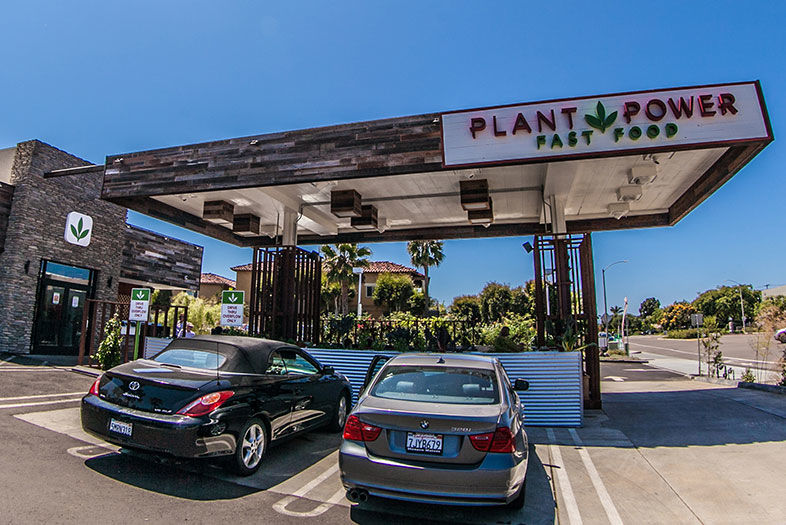
The Vegan Fast Food Revolution
Dizzle Management
